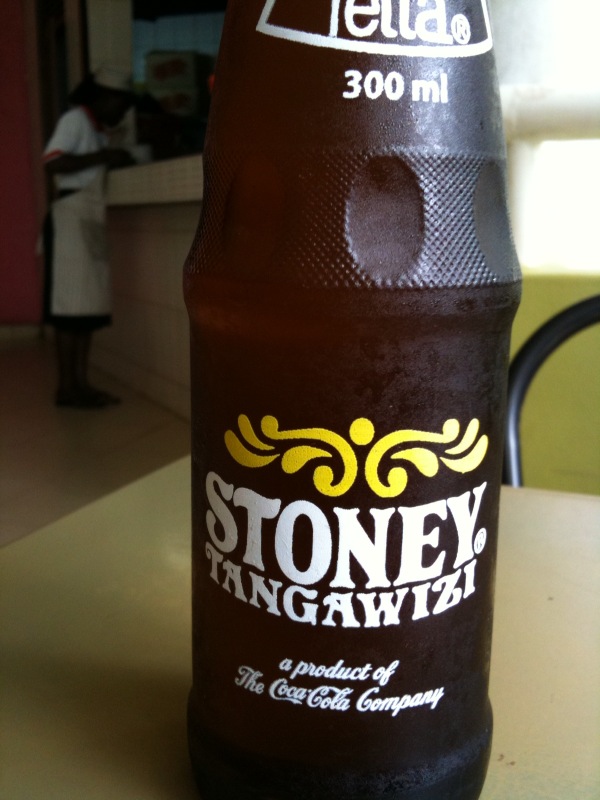And then, just like that, it was gone.
We had no Coca-Cola products in India thanks to the government kicking the company out of India.
In its place came some godawful soft drinks--one was even called the "Double Seven", the "77" was a reference to 1977, which was the year that Indira Gandhi lost the elections and the urine-drinking Morarji Desai became the prime minister. At least he didn't sell that bottled pee as cola, eh! But, that is a different story by itself.
I suppose Fanta also was appealing because I was a kid. I tried one much later, well into adulthood, and it was not the same. And then, a decade ago, I had Fanta when I was in Tanzania--but only when the absolutely wonderful ginger beer, "Stoney Tangawizi," which is also a Coca-Cola product, was not available.
Even though a product from the Coca-Cola company, Fanta was originally created because of a very bizarre situation in wartime Germany:
The soft drink Fanta was invented by Coca-Cola, an American company, inside of Nazi Germany during World War II. Developed at the height of the Third Reich, the new soda ensured the brand’s continued popularity. Fanta became a point of nationalistic pride and was consumed by the German public, from the Fraus cooking at home to the highest officials of the Nazi party.
Something like India coming up with "Double Seven" cola!
And what went into the making of Fanta?
The drink was technically fruit-flavored, but limited wartime resources made that descriptor not wholly accurate. Its ingredients were less than appetizing: leftover apple fibers, mash from cider presses, and whey, a cheese by-product. “[Fanta] was made from the leftovers of the leftovers,” says Mark Pendergrast, who, as the author of For God, Country, and Coca-Cola, revealed this hidden past.
If you are like, you begin to wonder why Coca-Cola was doing business in Nazi Germany. It has always been that way--profit-making rarely ever stops to pause to think about morals!
And then Pearl Harbor happened.
The U.S.’s entrance into World War II meant that American companies had to immediately stop all business activities with the enemy. In addition, the German government was threatening to seize “enemy-owned” businesses. General Motors pulled out of Germany (though, Opel, a fully owned subsidiary of GM, still operated there). IBM’s operations were seized by the Third Reich, though controversy exists on how much they contributed to the German war effort. Coca-Cola HQ in Atlanta also cut off communications with Keith in Germany and halted the export of Coca-Cola’s 7X flavoring (the long-mythicized, top secret formula for Coca-Cola syrup).
The name Fanta? "Joe Knipp, a salesman, pitched “Fanta,” shorthand for the German word for “fantasy.” It stuck."
So, if Fanta was invented in Nazi Germany, then Coca-Cola could have easily discontinued that name, right? Wrong. Have you already forgotten that profit-making rarely ever stops to pause to think about morals?
In April 1955, Coca-Cola reintroduced Fanta with a new recipe, this time as an orange-flavored drink. It debuted in Italy, before making its way to the United States in 1958. According to Pendergrast, they revived the name largely because it was convenient. After all, Coca-Cola already had the copyright. “I don’t think anyone [at Coca-Cola] cared that [Fanta] had roots inside of Nazi Germany,” says Pendergrast, “I think they thought no one would pay attention.”
Such is life in these modern times!

No comments:
Post a Comment